Navigating Time Across Africa: A Comprehensive Look At Time Zones
By admin / August 26, 2024 / No Comments / 2025
Navigating Time Across Africa: A Comprehensive Look at Time Zones
Related Articles: Navigating Time Across Africa: A Comprehensive Look at Time Zones
Introduction
With great pleasure, we will explore the intriguing topic related to Navigating Time Across Africa: A Comprehensive Look at Time Zones. Let’s weave interesting information and offer fresh perspectives to the readers.
Table of Content
Navigating Time Across Africa: A Comprehensive Look at Time Zones
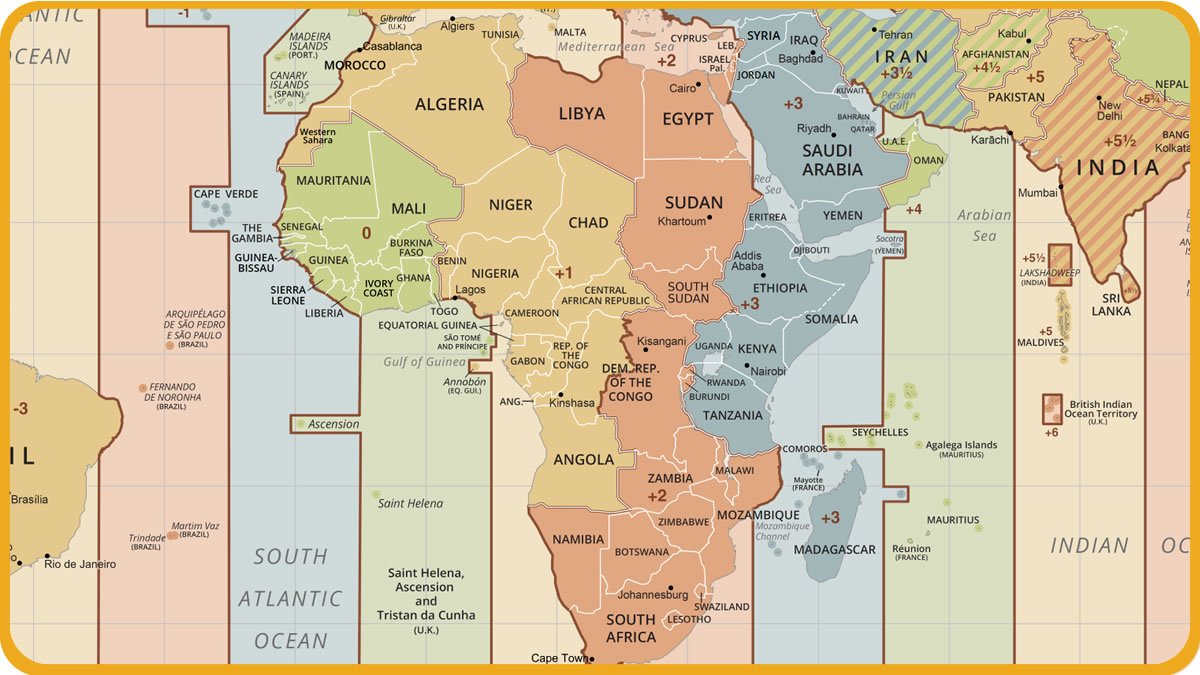
Africa, the second-largest continent, stretches across vast distances and diverse landscapes. This expansive geography, combined with its varied history, has resulted in a complex system of time zones. Understanding the intricacies of these time zones is crucial for effective communication, travel planning, and international business operations.
A Mosaic of Time Zones:
Africa is home to a total of 52 time zones, though only a few are actively used. The continent’s time zones are largely based on the Greenwich Mean Time (GMT), with each time zone being one hour ahead or behind GMT. The most common time zone in Africa is GMT+2, which encompasses countries like South Africa, Egypt, and Libya. Other prominent time zones include GMT+1, GMT+3, and GMT+4.
Factors Influencing Time Zone Boundaries:
Several factors contribute to the configuration of Africa’s time zone map:
- Longitude: The most fundamental factor determining time zones is longitude. Each time zone is approximately 15 degrees of longitude wide, corresponding to one hour of time difference.
- Political Boundaries: National borders often play a role in defining time zone boundaries, even if they do not perfectly align with longitudinal lines.
- Historical Influences: Colonial history and the legacy of European powers have influenced the adoption of specific time zones in various African countries.
- Economic Considerations: Time zones can be adjusted to facilitate trade and communication with major international partners.
- Social and Cultural Factors: In some cases, time zones may be adjusted to maintain consistency with neighboring countries or to accommodate cultural practices.
Navigating the Map:
A comprehensive understanding of Africa’s time zones is essential for various purposes:
- Travel: Travelers need to be aware of the time difference between their home country and their destination in Africa to adjust their schedules accordingly.
- Business: International businesses operating in Africa must coordinate their activities across different time zones to ensure effective communication and collaboration.
- Communication: Understanding time differences is crucial for scheduling meetings, phone calls, and other communication activities.
- Research: Researchers studying various aspects of Africa, including climate, ecology, and social behavior, need to consider the impact of time zones on their data analysis.
A Closer Look at Notable Time Zone Variations:
While many African countries adhere to a single time zone, some exhibit unique variations:
- Morocco: Despite its proximity to Europe, Morocco adheres to GMT+0, a unique choice that aligns with its historical and cultural ties to the Arab world.
- Western Sahara: This disputed territory, controlled by Morocco, follows the same time zone as Morocco (GMT+0).
- Madagascar: This island nation, located off the southeastern coast of Africa, uses GMT+3, a time zone that is one hour ahead of its mainland neighbors.
- Cape Verde: This archipelago in the Atlantic Ocean, a former Portuguese colony, maintains a time zone of GMT-1, one hour behind GMT.
FAQs about Africa’s Time Zones:
1. Why are there so many time zones in Africa?
Africa’s vast size and longitudinal expanse necessitate a multitude of time zones to ensure that the sun reaches its zenith at approximately noon across the continent.
2. How do time zones affect travel in Africa?
Travelers must be aware of the time differences between their home country and their destination in Africa to adjust their schedules for flights, meetings, and other activities.
3. What are the benefits of using multiple time zones in Africa?
Multiple time zones facilitate efficient communication, coordination, and trade across the continent by aligning work schedules and business operations.
4. Are there any plans to simplify the time zone system in Africa?
Discussions regarding simplifying the time zone system in Africa have been ongoing, but no concrete changes have been implemented.
5. How can I find the current time in a specific location in Africa?
Numerous online tools and smartphone apps provide real-time information on the current time in any location, including those in Africa.
Tips for Navigating Time Zones in Africa:
- Use online time zone converters: These tools allow you to easily determine the time difference between any two locations.
- Set your watch to the local time: This helps you adjust to the new time zone quickly.
- Be mindful of meeting times: When scheduling meetings with people in different time zones, ensure that you understand the time difference and book the meeting accordingly.
- Use time zone-aware communication tools: Many communication platforms, such as email and messaging apps, automatically adjust timestamps to reflect the recipient’s time zone.
Conclusion:
Africa’s time zone map is a testament to the continent’s vastness and the complexity of its geography. Understanding the intricacies of these time zones is essential for effective communication, travel planning, and international business operations. By navigating the map with awareness and utilizing available tools, individuals and organizations can navigate the challenges posed by time differences and ensure efficient coordination across the continent.

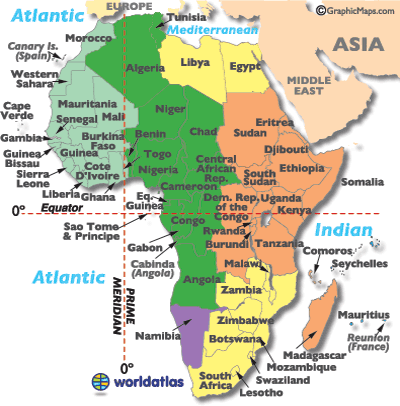
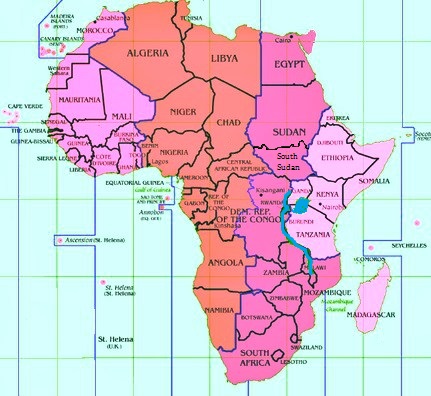
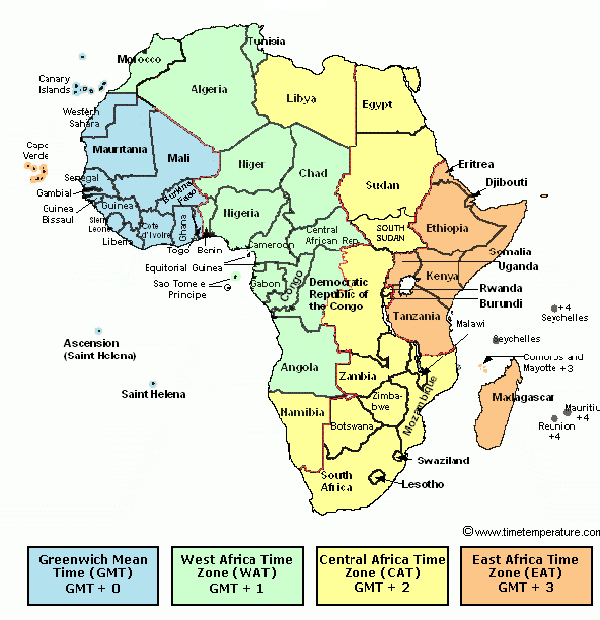
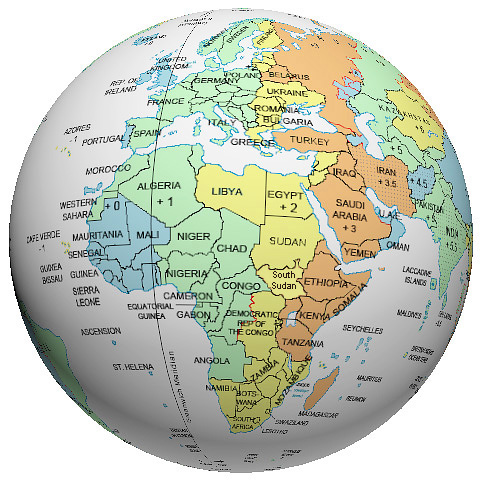
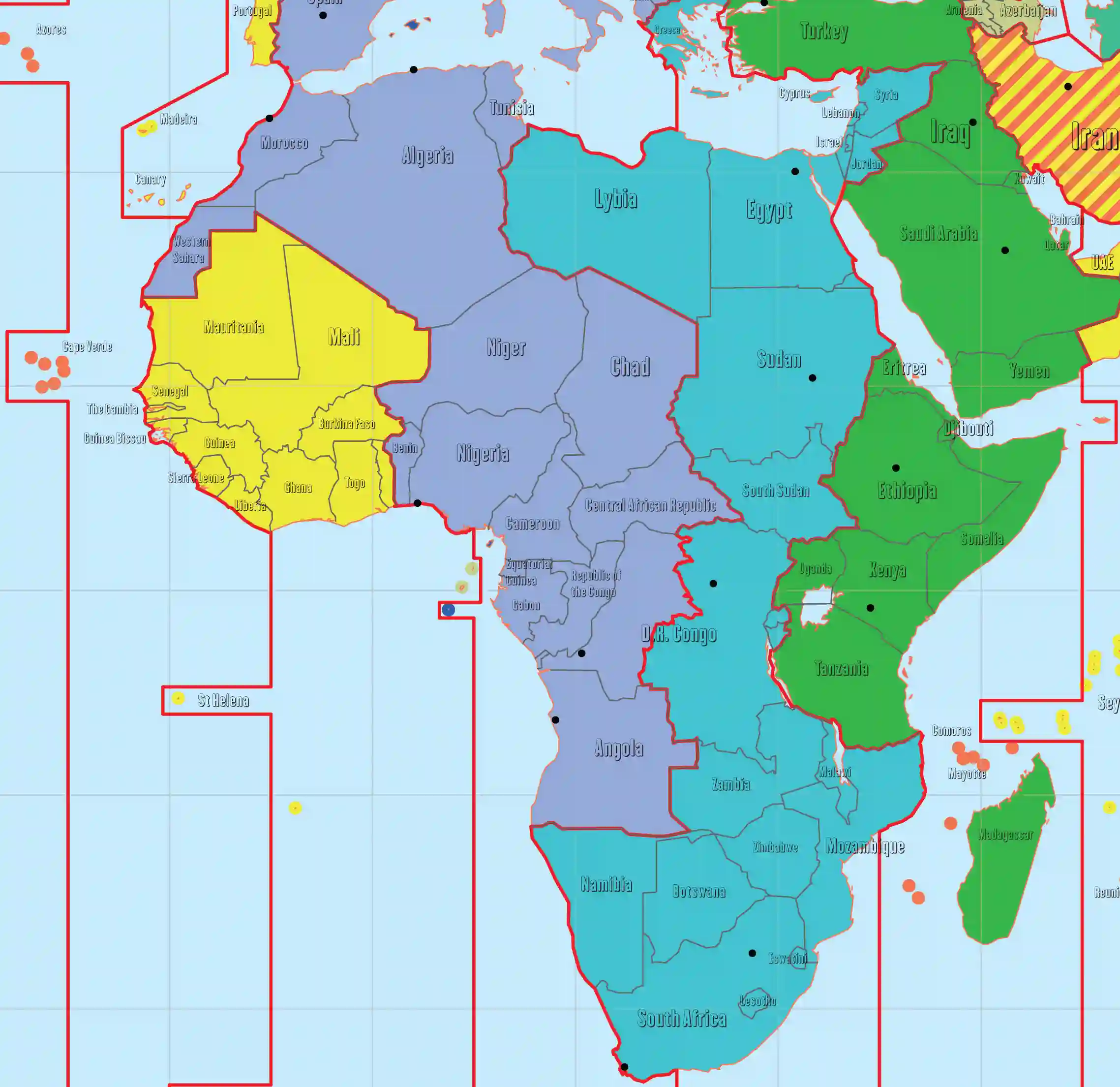
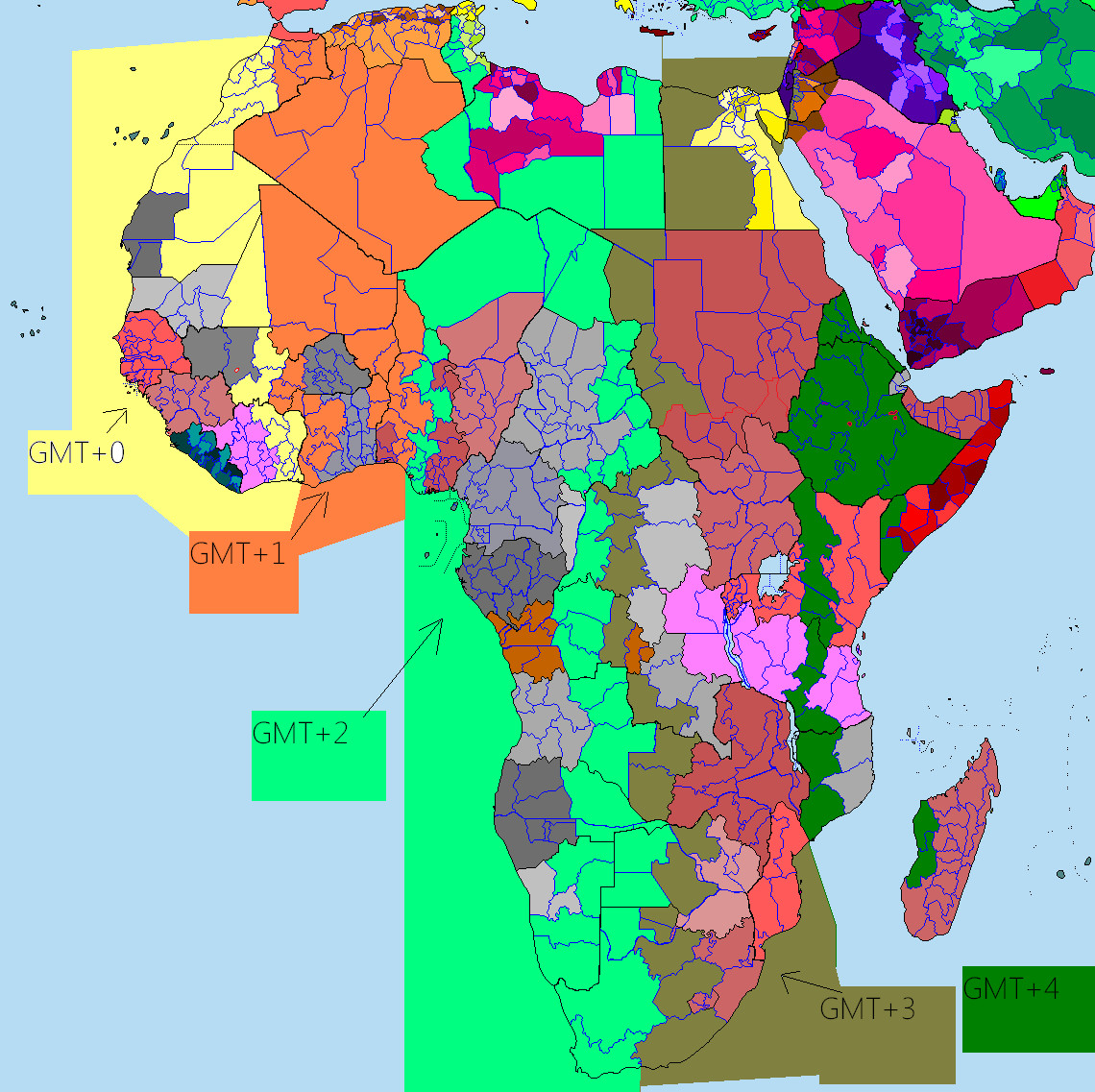
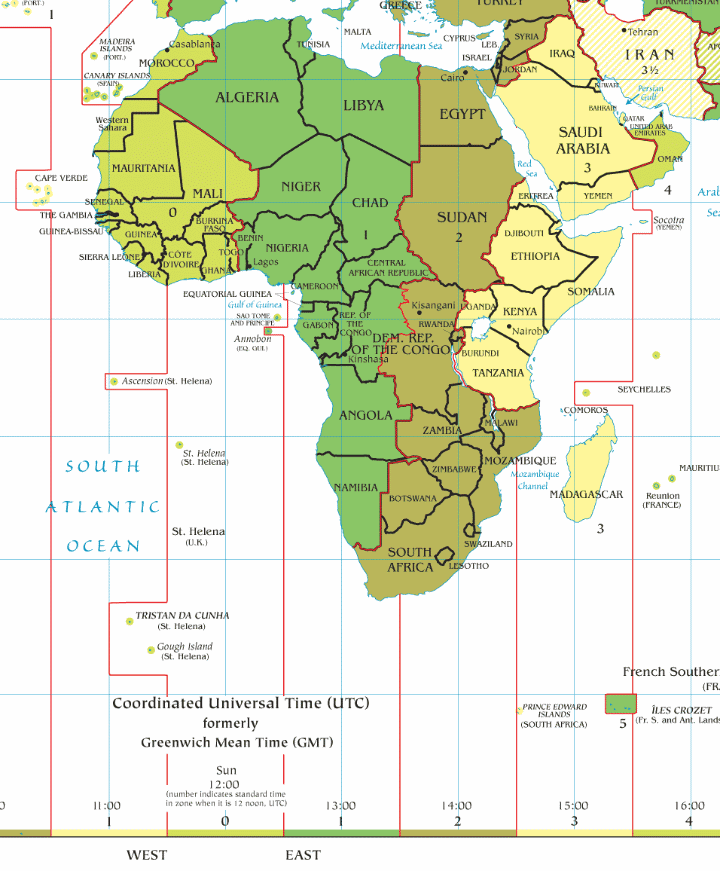
Closure
Thus, we hope this article has provided valuable insights into Navigating Time Across Africa: A Comprehensive Look at Time Zones. We hope you find this article informative and beneficial. See you in our next article!